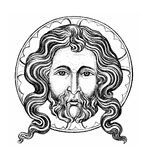
The Virgin Birth: Where Science Meets Scripture
PUTTING JESUS TO THE DNA TEST
A 2013 Harris Poll found that while sixty-eight percent of American adults believe that Jesus is God, or the Son of God, only fifty-seven percent believe in the virgin birth. Disbelief in Jesus being born of a virgin, which is a fundamental tenet of Christianity, in turn implies a belief that the author of the Gospel According to Luke lied when he wrote:
The angel Gabriel was sent from God to a town of Galilee called Nazareth, to a virgin betrothed to a man named Joseph…. The angel said to her, “Do not be afraid, Mary, for you have found favor with God. Behold you will conceive in your womb and bear a son, and you shall name him Jesus….” But Mary said to the angel, “How can this be, since I have no relations with a man?” And the angel said to her in reply, “The Holy Spirit will come upon you, and the power of the Most High will overshadow you. Therefore the child to be born will be called holy, the Son of God.” (1:26-35; emphasis added)
Biblical scholars use various methods to assess the truthfulness of the New Testament accounts of Jesus. One is the Criterion of Embarrassment, according to which it is human nature to write in a manner that puts the author and his cause in a positive, instead of embarrassing or negative, light. The authors of the canonical Gospels are no exception. And so, with this criterion in mind, it is reasonable for us to infer that biblical passages that place Jesus or His mother in an unflattering light, such as Mary’s premarital pregnancy, are likely to be true.
According to Hebrew law and customs at the time, an unmarried girl who became pregnant could be stoned to death. When Mary told Joseph that she was with child, Joseph had every reason to fear, not just for Mary but for himself, because in the eyes of the community he would be the obvious culprit. Joseph, therefore, faced a dilemma: If he married his fiancée, it would be an admission that he had had relations with her before marriage, which meant he would live the rest of his life with a tainted reputation. Not to marry his betrothed, however, would mean abandoning Mary to a life of shame at best, or at worst, death.
You May Also Enjoy
The forces that promote the Culture of Death have chosen their reward: "Better to reign in Hell than serve in Heaven!"
Through His Church, His covenant, His liturgy, His sacraments, His Word, and His Spirit, Christ continues to dwell among us.
Ed. Note: Mark P. Shea, a former Evangelical and now a Catholic, here recounts his…

